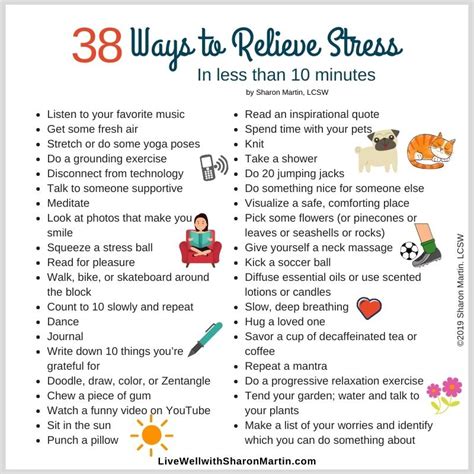How to Manage Stress and Stay Calm During Busy Times

We’ve all experienced those moments when life feels like a whirlwind: work demands, family obligations, social commitments, and the constant pressure to stay on top of everything. During busy times, stress can easily overwhelm us, leading to burnout, anxiety, and a sense of being out of control. However, it’s possible to navigate these chaotic periods with calmness and clarity. With a few practical strategies, you can manage stress effectively and maintain your peace of mind even when life feels like it’s moving at breakneck speed.
Prioritize and Delegate
One of the main causes of stress during busy times is feeling like there’s too much to do and not enough time to do it. To regain control, start by prioritizing your tasks. Identify the most important tasks that need immediate attention and the ones that can be delayed or delegated. Break down large tasks into smaller, more manageable steps.
When possible, delegate responsibilities to others. Whether it’s asking a colleague to help with a work project or getting family members to pitch in with chores, sharing the load can significantly reduce your stress. Remember, asking for help is a sign of strength, not weakness.
Practice Mindfulness and Deep Breathing
When stress levels rise, your body tends to go into “fight or flight” mode, which can make you feel anxious and overwhelmed. Mindfulness and deep breathing exercises can help activate your body’s relaxation response, reducing the effects of stress.
Try deep breathing techniques, like the 4-7-8 method, where you inhale for four seconds, hold your breath for seven seconds, and then exhale for eight seconds. This simple practice can calm your nervous system and restore a sense of calm.
Mindfulness, on the other hand, involves being fully present in the moment without judgment. You can practice mindfulness by paying attention to your surroundings, focusing on your breathing, or simply noticing the sensations in your body. By anchoring yourself in the present, you’ll be less likely to spiral into worry about the future or ruminate over past events.
Set Boundaries
During busy periods, it’s easy to take on too much out of a sense of obligation or fear of disappointing others. However, constantly saying “yes” can lead to burnout and heightened stress. Setting clear boundaries is essential for maintaining balance.
Be honest with yourself and others about your limits. If you’re feeling stretched thin, politely decline additional tasks or social invitations. Practice saying no without guilt. You have the right to prioritize your well-being.
Take Breaks and Practice Self-Care
In the hustle and bustle of busy times, we often forget to care for ourselves. However, regular breaks and self-care are vital for maintaining mental and physical health. Schedule time throughout your day to step away from your responsibilities—whether that’s going for a walk, reading a book, taking a power nap, or simply sitting in silence for a few minutes.
Self-care doesn’t have to be time-consuming or extravagant. Small acts of self-compassion, like taking a hot bath, journaling, or listening to calming music, can make a significant difference in how you handle stress.
Maintain a Healthy Lifestyle
Stress is more difficult to manage if you’re not taking care of your body. Ensuring you get enough sleep, eat nutritious meals, and exercise regularly can significantly improve your ability to cope with stress. Lack of sleep, poor nutrition, and inactivity can amplify stress, making you more susceptible to feeling overwhelmed.
Aim for at least 7–8 hours of sleep each night, eat a balanced diet that includes whole foods, and incorporate regular physical activity into your routine. Even short bursts of exercise, like a 10-minute walk or stretching, can release tension and boost your mood.
Stay Organized
A chaotic environment can increase stress, so staying organized is key during busy times. Use tools like to-do lists, planners, or digital calendars to track your tasks and deadlines. Keep your workspace tidy and organized, and make sure you have a system in place to prioritize your responsibilities.
When you can visually see your tasks laid out, it feels more manageable and less overwhelming. Organization allows you to focus on one task at a time, rather than feeling scattered and disoriented.
Stay Connected and Seek Support
When life gets busy, it’s easy to isolate yourself from others, but connecting with friends, family, or a support network can help alleviate stress. Sharing your feelings with someone who listens and understands can provide comfort and perspective. Sometimes, just talking things through can reduce the weight of stress.
If you’re feeling particularly overwhelmed, consider seeking professional support, like speaking with a therapist or counselor. They can provide tools and coping mechanisms tailored to your specific situation.
Focus on What You Can Control
During stressful times, it’s easy to get caught up in things beyond your control. Focusing on these uncontrollable factors can increase anxiety. Instead, concentrate on what you can control—your attitude, your actions, and how you respond to challenges.
When you shift your focus to what’s within your power, you regain a sense of control over your life. For instance, while you can’t control every aspect of your workday, you can control how you organize your tasks or how you react to stressors.
Adopt a Positive Mindset
Your mindset plays a huge role in how you experience stress. Adopting a positive outlook doesn’t mean ignoring difficulties but rather reframing your perspective. Instead of viewing busy times as a burden, try to see them as an opportunity for growth, learning, and accomplishment.
When you approach challenges with a positive mindset, you’re better able to stay calm and focused. Practice gratitude by acknowledging the things you’re thankful for, even in the midst of stress. A positive attitude can make a significant difference in how you handle busy and overwhelming moments.